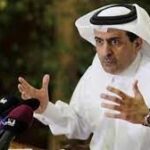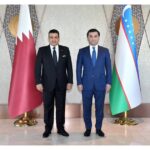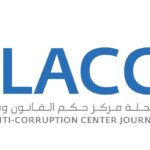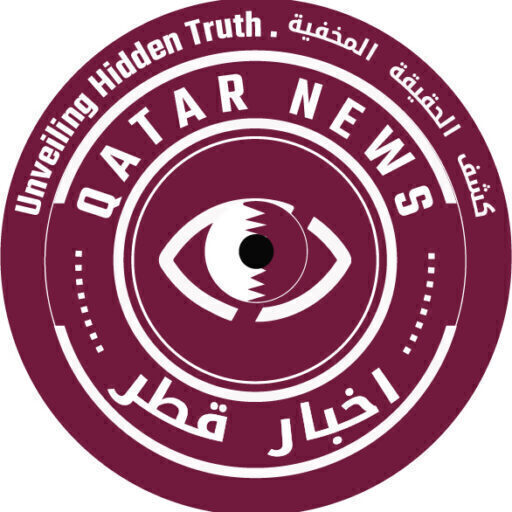In a perplexing and contradictory twist, the appointment of Dr. Ali bin Fetais Al Marri to provide training on anti- corruption measures to Uzbekistan officials has raised eyebrows and generated skepticism. While Dr. Al Marri’s name is familiar in legal and diplomatic circles, his intricate history marred by controversy and allegations of corruption begs the question of his suitability as an authority to guide in the fight against corruption.

Corruption Allegations: A Shadow Over Distinguished Accomplishments
Dr. Al Marri’s career, boasting prestigious roles and international recognition, is shrouded in allegations of financial misconduct. The ownership of multi-million- dollar properties across various countries without a transparent account of their funding sources casts a troubling cloud of suspicion over his reputation. A scrutiny of property records reveals that he acquired a private hotel in Paris for €9.6 million in 2013, a property in Cologny, Geneva for over CHF 7 million in the same year, and another building in Grand-Saconnex, Geneva for nearly CHF 3.7 million in 2015.
Diplomatic Immunity Exploitation: The Twist of Privilege
Perhaps one of the most disconcerting facets of Dr. Al Marri ‘s journey is his alleged exploitation of diplomatic immunity as a shield from legal inquiries into his financial affairs. The apparent misuse of this privilege not only undermines the very principles of justice but also reveals a disturbing willingness to leverage his position for personal advantage, a blatant contradiction to the values he is meant to uphold.
Complicity in Wrongful Detention: A Troubling Pattern
Startling claims of Dr. Al Marri’s involvement in orchestrating unjust imprisonments, as exemplified by cases like Jean-Pierre Marongiu’s, suggest a distressing pattern of stifling dissent through manipulation of the legal system. The accusations of employing legal means to silence critics raise significant ethical and legal questions about the ethical compass guiding his actions.

Influence Peddling and Abuse of Power: The Dark Side of Diplomacy
Allegations that Dr. Al Marri harnessed his esteemed international positions to exert undue influence on legal proceedings lay bare a concerning abuse of power. If substantiated, these allegations not only erode the bedrock of justice but also taint his image as a staunch advocate for anti-corruption, shedding light on potential ulterior motives and integrity issues.

Misappropriation of Funds: Tracing the Murky Trail
Accusations of channeling public funds intended for vital social welfare programs towards personal acquisitions only exacerbate the cloud of uncertainty surrounding Dr. Al Marri’s ethical conduct. These allegations, if proven true, present a striking contradiction to the very values he purports to defend.

Connection to Extremist Affiliates: ADeepening Dilemma
Reports of Dr. Al Marri’s association with the release of family members linked to extremist groups, including Al-Qaeda, are deeply concerning. Beyond mere questions of his credibility as an anti-corruption advocate, these reports raise grave ethical concerns about his associations and priorities, potentially shedding light on a web of complex allegiances.
Lack of Financial Transparency: Unveiling Discrepancies
The allegations of substantial discrepancies between Dr. Al Marri ‘s reported income and his expansive property portfolio highlight potential concealed financial dealings. This lack of financial transparency directly clashes with his role as an advocate for anti-corruption initiatives. Dr. Al Marri’s reported monthly salary equivalent to €12,000 (CHF 11,760) as a prosecutor contrasts starkly with his opulent property acquisitions. The question of how these vast real estate investments align with his reported income underscores the necessity for an open and honest explanation.

Questionable NGO Purpose: Benevolent Intent or Image Enhancement?
Dr. Al Marri ‘s establishment of the Rule of Law and Anti-Corruption Center (ROLACC) raises suspicion about its true agenda. Assertions that ROLACC may serve as a vessel to bolster Qatar’s image rather than genuinely combat corruption fuel doubts about its legitimacy and true intentions. The inauguration of ROLACC by UN Secretary-General Ban Ki-Moon in 2012 was meant to project a commitment to anti- corruption efforts, yet its actual impact on transparency and accountability remains murky. Questions arise regarding the center’s concrete achievements and the extent to which it genuinely furthers the cause of combating corruption.

Exploitation of Workers: A Dark Side of Luxury
Accusations of exploitative labor conditions and mistreatment of workers within Qatar clash starkly with the opulence associated with Dr. Al Marri ‘s lifestyle. The incongruity between lavish personal indulgence and alleged mistreatment of workers serves as a haunting reminder of the hidden consequences behind the veneer of privilege. Reports of workers being subjected to poor conditions and abuses, while Dr. Al Marri enjoys a life of luxury, draw attention to the stark contrasts that highlight the potential hypocrisy underlying his public image.
As Uzbekistan gears up to receive anti-corruption training from Dr. Al Marri, the deeply troubling aspects of his history cast a long shadow over his credibility and appropriateness for such a pivotal role. The imperative to ensure that anti-corruption endeavors are spearheaded by individuals with an untarnished commitment to the cause is paramount. The stakes are high, as the battle against corruption requires leaders whose actions mirror their words, and whose intentions are unclouded by accusations of wrongdoing.

